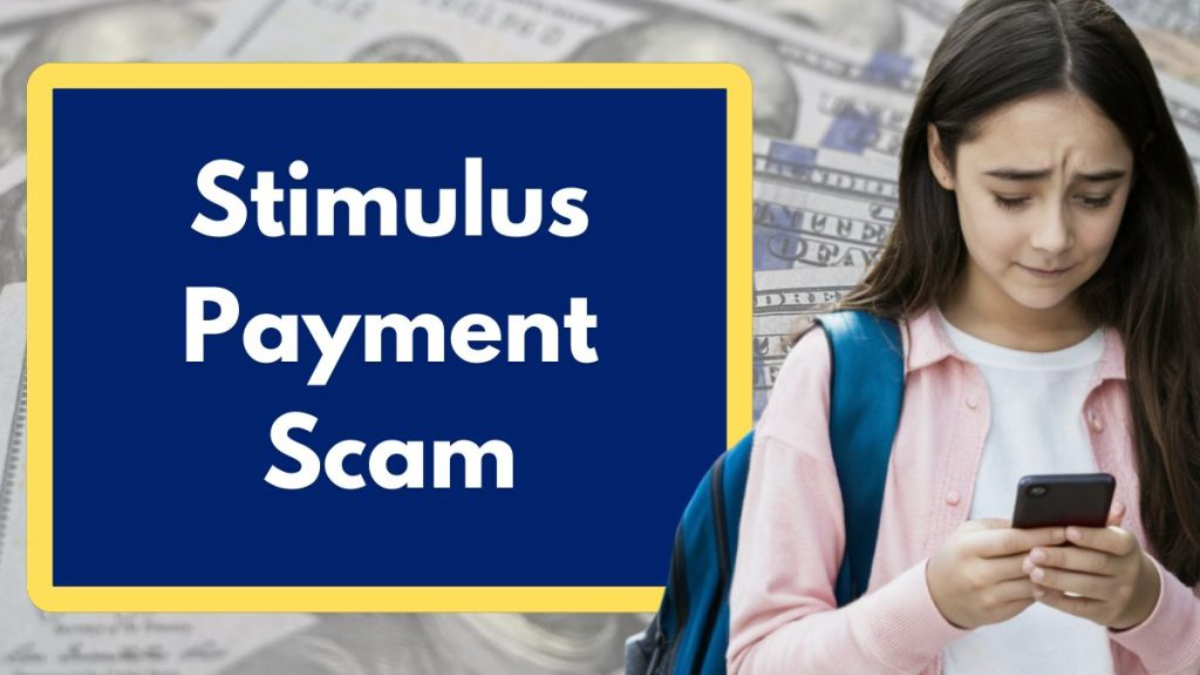With the ongoing distribution of government relief and stimulus payments, scammers are taking advantage of the situation to trick individuals into giving away personal information or money. From fake rebate claims to fraudulent government payment schemes, it’s crucial to understand the latest scams and how to protect yourself. Here’s a breakdown of the most common stimulus payment scams currently circulating and the steps you can take to avoid falling victim.
1. Fake Stimulus Payment Calls and Texts
One of the most common scams involves fraudsters impersonating government officials to steal personal information. Scammers often call or send text messages claiming that the recipient is eligible for a stimulus payment or rebate, but they need to provide sensitive information, such as Social Security numbers, bank account details, or credit card numbers, to process the payment.
These scammers may create a sense of urgency, threatening that the payment will be delayed or canceled unless immediate action is taken. They might also request a fee for processing or ask you to verify information that the government would never ask for via phone or text.
How to Avoid This Scam:
- The government will never ask you for sensitive information like your Social Security number or bank details over the phone or text.
- Do not respond to unsolicited calls or messages claiming to be from government agencies.
- If you receive a suspicious message, hang up or delete the text and report it to the Federal Trade Commission (FTC).
2. Phony Government Websites and Emails
Another growing scam involves fraudulent websites and phishing emails that look like official government pages. These scammers set up fake websites that resemble government portals, offering “stimulus checks” or rebates in exchange for personal information. They may also send phishing emails with links to these fake sites or ask recipients to click on an attachment.
Once individuals visit the fake site, they are prompted to enter confidential data, which the scammer then uses for identity theft or to steal funds.
How to Avoid This Scam:
- Always check the URL for official government websites. The IRS website, for example, is “www.irs.gov.”
- Be cautious of emails or links that ask for personal information, especially if you didn’t initiate the contact.
- Avoid downloading attachments from unknown sources, as they could contain malware.
3. Stimulus Payment “Processing Fees”
Some scammers tell individuals that in order to receive their stimulus check or rebate, they must pay a processing fee upfront. This scam often involves requests for wire transfers, prepaid gift cards, or other untraceable forms of payment. Once the payment is made, the scammer disappears, and the victim never receives the promised funds.
In some cases, scammers may claim that the victim’s payment is being held up by backlogs or that the recipient must pay a fee to “unlock” their rebate.
How to Avoid This Scam:
- The government will never require you to pay any upfront fees to receive a stimulus check.
- If you’re asked for a payment or gift card in exchange for a government payment, it’s a scam.
- Contact the official government agency (e.g., IRS or SSA) to verify any concerns about your payments.
4. Social Media Stimulus Scams
Social media platforms like Facebook, Twitter, and Instagram have also become hotbeds for stimulus payment scams. Fraudsters create fake social media profiles claiming to be government representatives or “stimulus payment experts,” offering to help individuals claim rebates or access larger stimulus payments. These scammers often ask for upfront fees in exchange for helping you navigate the application process or access a larger payout.
How to Avoid This Scam:
- Be wary of social media profiles offering financial help or claiming to have inside knowledge about stimulus payments.
- Do not provide any personal or financial information to individuals or companies on social media.
- Always verify official government agencies for any stimulus or payment information.
5. Impersonation of Local Government Agencies
Scammers may also impersonate local government agencies, claiming to offer financial relief, rebates, or stimulus payments for specific regions or cities. These scams might target residents of a particular state or area, claiming that the local government is distributing special payments to residents in need. Scammers use these localized offers to seem more legitimate, but in reality, they are just trying to steal money.
How to Avoid This Scam:
- Always verify with your local government if you receive any unsolicited communication about financial relief or rebates.
- Check official city, state, or county websites for information regarding government programs.
- If the offer seems too good to be true, it probably is.
What to Do if You’ve Been Scammed
If you believe you’ve fallen victim to a stimulus payment scam, it’s important to act quickly. Report the incident to the FTC at www.reportfraud.ftc.gov, and notify your bank or credit card company if your financial information has been compromised. You may also want to contact your local authorities and the IRS if the scam involved tax-related details.
Final Thoughts
Stimulus payment scams are a growing threat, and it’s crucial to stay informed to protect yourself. Always be cautious when dealing with unsolicited communications about financial assistance and never share personal or financial information unless you’re sure the source is legitimate. By staying alert and following these guidelines, you can help safeguard your financial security.
For more information on how to protect yourself from fraud, visit the Federal Trade Commission.
Note: Every piece of content is rigorously reviewed by our team of experienced writers and editors to ensure its accuracy. Our writers use credible sources and adhere to strict fact-checking protocols to verify all claims and data before publication. If an error is identified, we promptly correct it and strive for transparency in all updates.








